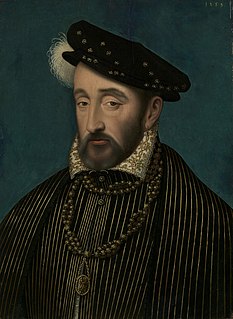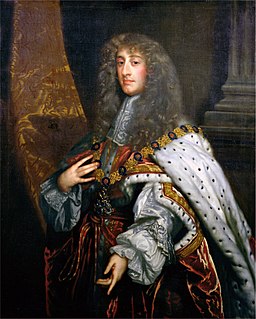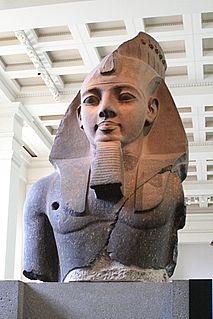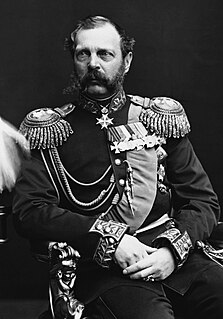 |
|---|
|
Judiciary |
|
| |
Legislative elections were held in the Eastern Region of Nigeria on 16 November 1961.
 |
|---|
| |
Legislative elections were held in the Eastern Region of Nigeria on 16 November 1961.
| Party | Seats | |
|---|---|---|
| National Council of Nigerian Citizens | 106 | |
| Action Group | 15 | |
| Dynamic Party | 5 | |
| Independents | 20 | |
| Total | 146 | |
| Source: Sternberger et al. [1] | ||

Mehmed II, commonly known as Mehmed the Conqueror, was an Ottoman sultan who ruled from August 1444 to September 1446, and then later from February 1451 to May 1481. In Mehmed II's first reign, he defeated the crusade led by John Hunyadi after the Hungarian incursions into his country broke the conditions of the truce Peace of Szeged. When Mehmed II ascended the throne again in 1451 he strengthened the Ottoman navy and made preparations to attack Constantinople. At the age of 21, he conquered Constantinople and brought an end to the Byzantine Empire.

Pope John Paul II was the head of the Catholic Church and sovereign of the Vatican City State from 1978 until his death in 2005. He was elected pope by the second papal conclave of 1978, which was called after John Paul I, who had been elected in August to succeed Pope Paul VI, died after 33 days. Cardinal Wojtyła was elected on the third day of the conclave and adopted the name of his predecessor in tribute to him. John Paul II is recognised as helping to end Communist rule in his native Poland and the rest of Europe.

Richard I was King of England from 1189 until his death in 1199. He also ruled as Duke of Normandy, Aquitaine and Gascony, Lord of Cyprus, and Count of Poitiers, Anjou, Maine, and Nantes, and was overlord of Brittany at various times during the same period. He was the third of five sons of King Henry II of England and Eleanor of Aquitaine and seemed unlikely to become king, but all his brothers except the youngest, John, predeceased their father. Richard is known as Richard Cœur de Lion or Richard the Lionheart because of his reputation as a great military leader and warrior. The troubadour Bertran de Born also called him Richard Oc-e-Non, possibly from a reputation for terseness.

World War II or the Second World War, often abbreviated as WWII or WW2, was a global war that lasted from 1939 to 1945. It involved the vast majority of the world's countries—including all of the great powers—forming two opposing military alliances: the Allies and the Axis powers. In a total war directly involving more than 100 million personnel from more than 30 countries, the major participants threw their entire economic, industrial, and scientific capabilities behind the war effort, blurring the distinction between civilian and military resources. Aircraft played a major role in the conflict, enabling the strategic bombing of population centres and the only two uses of nuclear weapons in war to this day. World War II was by far the deadliest conflict in human history; it resulted in 70 to 85 million fatalities, a majority being civilians. Tens of millions of people died due to genocides, starvation, massacres, and disease. In the wake of the Axis defeat, Germany and Japan were occupied, and war crimes tribunals were conducted against German and Japanese leaders.

Macedonia, also called Macedon, was an ancient kingdom on the periphery of Archaic and Classical Greece, and later the dominant state of Hellenistic Greece. The kingdom was founded and initially ruled by the royal Argead dynasty, which was followed by the Antipatrid and Antigonid dynasties. Home to the ancient Macedonians, the earliest kingdom was centered on the northeastern part of the Greek peninsula, and bordered by Epirus to the west, Paeonia to the north, Thrace to the east and Thessaly to the south.

Edward II, also called Edward of Caernarfon, was King of England from 1307 until he was deposed in January 1327. The fourth son of Edward I, Edward became the heir apparent to the throne following the death of his elder brother Alphonso. Beginning in 1300, Edward accompanied his father on campaigns to pacify Scotland. In 1306, he was knighted in a grand ceremony at Westminster Abbey. Following his father's death, Edward succeeded to the throne in 1307. He married Isabella, the daughter of the powerful King Philip IV of France, in 1308, as part of a long-running effort to resolve tensions between the English and French crowns.

George II was King of Great Britain and Ireland, Duke of Brunswick-Lüneburg (Hanover) and a prince-elector of the Holy Roman Empire from 11 June 1727 (O.S.) until his death in 1760.

Charles II was King of Scotland from 1649 until 1651, and King of Scotland, England and Ireland from the 1660 Restoration of the monarchy until his death in 1685.

Wilhelm II, anglicised as William II, was the last German Emperor (Kaiser) and King of Prussia, reigning from 15 June 1888 until his abdication on 9 November 1918. Despite strengthening the German Empire's position as a great power by building a blue-water navy and promoting scientific innovation, his tactless public statements and erratic foreign policy greatly antagonized the international community and are considered by many to be one of the underlying causes for World War I. When the German war effort collapsed after a series of crushing defeats on the Western Front in 1918, he was forced to abdicate, thereby bringing an end to the House of Hohenzollern's three-hundred-year reign.

Cleopatra VII Philopator was the last active ruler of the Ptolemaic Kingdom of Egypt. A member of the Ptolemaic dynasty, she was a descendant of its founder Ptolemy I Soter, a Macedonian Greek general and companion of Alexander the Great. After the death of Cleopatra, Egypt became a province of the Roman Empire, marking the end of the second to last Hellenistic state and the age that had lasted since the reign of Alexander. Her native language was Koine Greek, and she was the only Ptolemaic ruler to learn the Egyptian language.

Henry II was King of France from 31 March 1547 until his death in 1559. The second son of Francis I, he became Dauphin of France upon the death of his elder brother Francis III, Duke of Brittany, in 1536.

Vlad III, commonly known as Vlad the Impaler or Vlad Dracula, was Voivode of Wallachia three times between 1448 and his death. He is often considered one of the most important rulers in Wallachian history and a national hero of Romania.

James II and VII was King of England and Ireland as James II, and King of Scotland as James VII, from 6 February 1685 until he was deposed in the Glorious Revolution of 1688. He was the last Catholic monarch of England, Scotland, and Ireland; his reign is now remembered primarily for struggles over religious tolerance. However, it also involved the principles of absolutism and divine right of kings, and his deposition ended a century of political and civil strife by confirming the primacy of Parliament over the Crown.

Elizabeth II is Queen of the United Kingdom and 15 other Commonwealth realms.

Ramesses II, also known as Ramesses the Great, was the third pharaoh of the Nineteenth Dynasty of Egypt. He is often regarded as the greatest, most celebrated, and most powerful pharaoh of the New Kingdom, itself the most powerful period of Ancient Egypt. His successors and later Egyptians called him the "Great Ancestor".

Nicholas II or Nikolai II Alexandrovich Romanov, known in the Russian Orthodox Church as Saint Nicholas the Passion-Bearer, was the last Emperor of Russia, King of Congress Poland and Grand Duke of Finland, ruling from 1 November 1894 until his abdication on 15 March 1917. During his reign, Nicholas gave support to the economic and political reforms promoted by his prime ministers, Sergei Witte and Pyotr Stolypin. He advocated modernization based on foreign loans and close ties with France, but resisted giving the new parliament major roles. Ultimately, progress was undermined by Nicholas's commitment to autocratic rule, strong aristocratic opposition and defeats sustained by the Russian military in the Russo-Japanese War and World War I. By March 1917, public support for Nicholas had collapsed and he was forced to abdicate the throne, thereby ending the Romanov dynasty's 304-year rule of Russia (1613–1917).

The Achaemenid Empire, also called the First Persian Empire, was an ancient Iranian empire that was based in Western Asia and founded by Cyrus the Great. It reached its greatest extent under Xerxes I, who conquered most of northern and central ancient Greece, including the city of Athens, in 480 BC. At its greatest territorial extent, the Achaemenid Empire stretched from the Balkans and Eastern Europe in the west to the Indus Valley in the east. The empire was larger than any previous empire in history, spanning a total of 5.5 million square kilometers.

Alexander II was the Emperor of Russia, King of Congress Poland and Grand Duke of Finland from 2 March 1855 until his assassination.